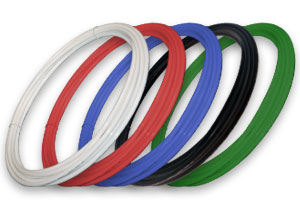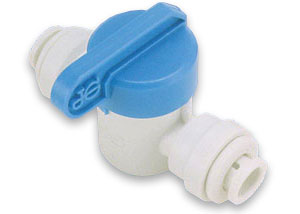

A highly porous adsorbent material, produced by heating organic matter, such as coal, wood and coconut shell, in the absence of air, which is then crushed into granules. Activated carbon is positively charged and therefore able to remove negative ions from the water such as chlorine and dissolved organic solutes by absorption onto the activated carbon. The coconut shell carbon must be replaced periodically as it may become saturated and unable to absorb.
One of the most common applications for activated carbon is the reduction of the undesirable tastes and odors present in many chlorinated water supplies. Activated carbon has been successful for many years in the reduction of free chlorine from water supplies. The end product is clean, fresh water with no objectionable taste or odor characteristics.

















